Fani Willis also used very poor judgment in paying her lover from a slush fund of forfeited assets. Then she tried to cover it up.Assuming Fani used poor judgement in hiring her lover, how does that wipe out Donald's attempt to steal the GA election.
Colleges
- American Athletic
- Atlantic Coast
- Big 12
- Big East
- Big Ten
- Colonial
- Conference USA
- Independents (FBS)
- Junior College
- Mountain West
- Northeast
- Pac-12
- Patriot League
- Pioneer League
- Southeastern
- Sun Belt
- Army
- Charlotte
- East Carolina
- Florida Atlantic
- Memphis
- Navy
- North Texas
- Rice
- South Florida
- Temple
- Tulane
- Tulsa
- UAB
- UTSA
- Boston College
- California
- Clemson
- Duke
- Florida State
- Georgia Tech
- Louisville
- Miami (FL)
- North Carolina
- North Carolina State
- Pittsburgh
- Southern Methodist
- Stanford
- Syracuse
- Virginia
- Virginia Tech
- Wake Forest
- Arizona
- Arizona State
- Baylor
- Brigham Young
- Cincinnati
- Colorado
- Houston
- Iowa State
- Kansas
- Kansas State
- Oklahoma State
- TCU
- Texas Tech
- UCF
- Utah
- West Virginia
- Illinois
- Indiana
- Iowa
- Maryland
- Michigan
- Michigan State
- Minnesota
- Nebraska
- Northwestern
- Ohio State
- Oregon
- Penn State
- Purdue
- Rutgers
- UCLA
- USC
- Washington
- Wisconsin
High Schools
- Illinois HS Sports
- Indiana HS Sports
- Iowa HS Sports
- Kansas HS Sports
- Michigan HS Sports
- Minnesota HS Sports
- Missouri HS Sports
- Nebraska HS Sports
- Oklahoma HS Sports
- Texas HS Hoops
- Texas HS Sports
- Wisconsin HS Sports
- Cincinnati HS Sports
- Delaware
- Maryland HS Sports
- New Jersey HS Hoops
- New Jersey HS Sports
- NYC HS Hoops
- Ohio HS Sports
- Pennsylvania HS Sports
- Virginia HS Sports
- West Virginia HS Sports
ADVERTISEMENT
You are using an out of date browser. It may not display this or other websites correctly.
You should upgrade or use an alternative browser.
You should upgrade or use an alternative browser.
Lawfare: US v. Trump, Trump wins!
- Thread starter Gallipoli
- Start date
This is a good synopsys of the case. They discuss removing Fani, but they don't discuss removing Wade, but leaving Fani in place. The problem- if Wade is removed that taints the entire process, including the Grand Jury indictment. That argument suggests that Wade should not have been part of any of this from the beginning and that he should not have been allowed into the Grand Jury proceedings.
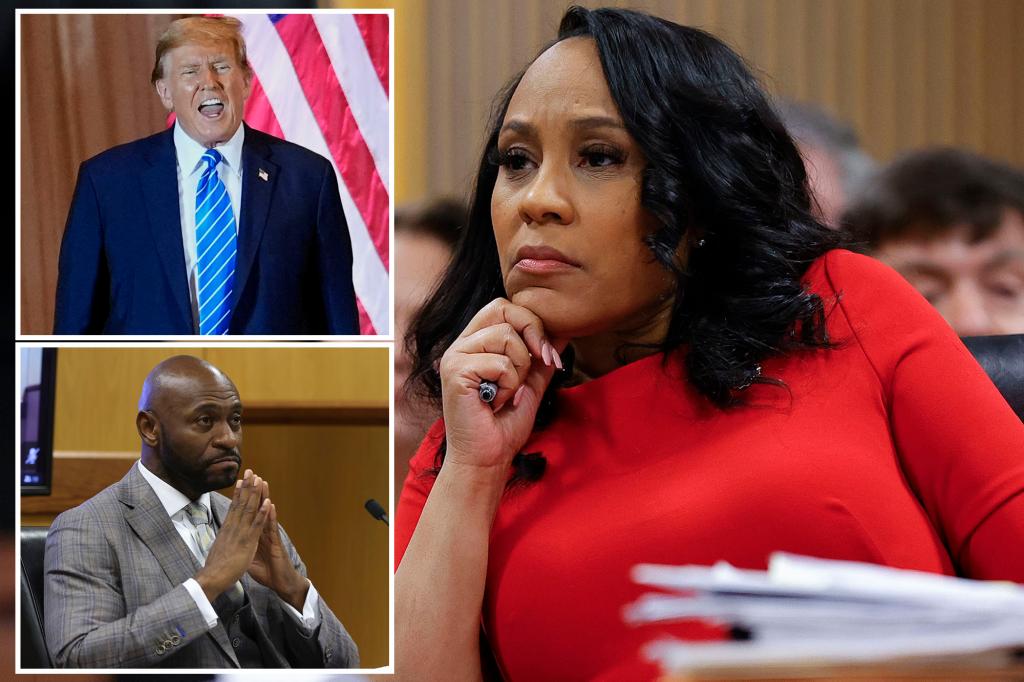
 nypost.com
nypost.com

Fani Willis’ legal drama explained: Will she be booted from case? What does it mean for Trump?
Fulton County Superior Court Judge Scott McAfee is currently weighing whether Willis’ affair with prosecutor Nathan Wade is grounds for taking the case off her hands.
Scott McAfee is the judge overseeing the Trump case in Georgia. He says his integrity as a person is more important than any job. It sounds like he will call balls and strikes, without regard to politics, like any good judge should do. This is a Washington Post biopic about him. He is up for reelection on May 21. He was a member of the Federalist Society in Law School and he worked for Fani Willis in the DA's office.
He just dismissed 3 charges against Trump. Several remain.
"Fulton County Superior Court Judge Scott McAfee wrote that six of the charges in the indictment must be quashed, including three against Trump. But the order leaves intact many other charges in the indictment and McAfee wrote prosecutors could seek a new indictment on the charges he dismissed."

 www.atlantanewsfirst.com
www.atlantanewsfirst.com
"Fulton County Superior Court Judge Scott McAfee wrote that six of the charges in the indictment must be quashed, including three against Trump. But the order leaves intact many other charges in the indictment and McAfee wrote prosecutors could seek a new indictment on the charges he dismissed."

Judge dismisses 6 charges in Georgia election interference case, including 3 against Trump
Trump, Rudy Giuliani attorneys applaud ruling | Fulton DA Fani Willis’ fate still unclear
It looks like Nathan Wade was disqualified, if not the entire DA's office will be removed. One may expect that both will have their licenses revoked.
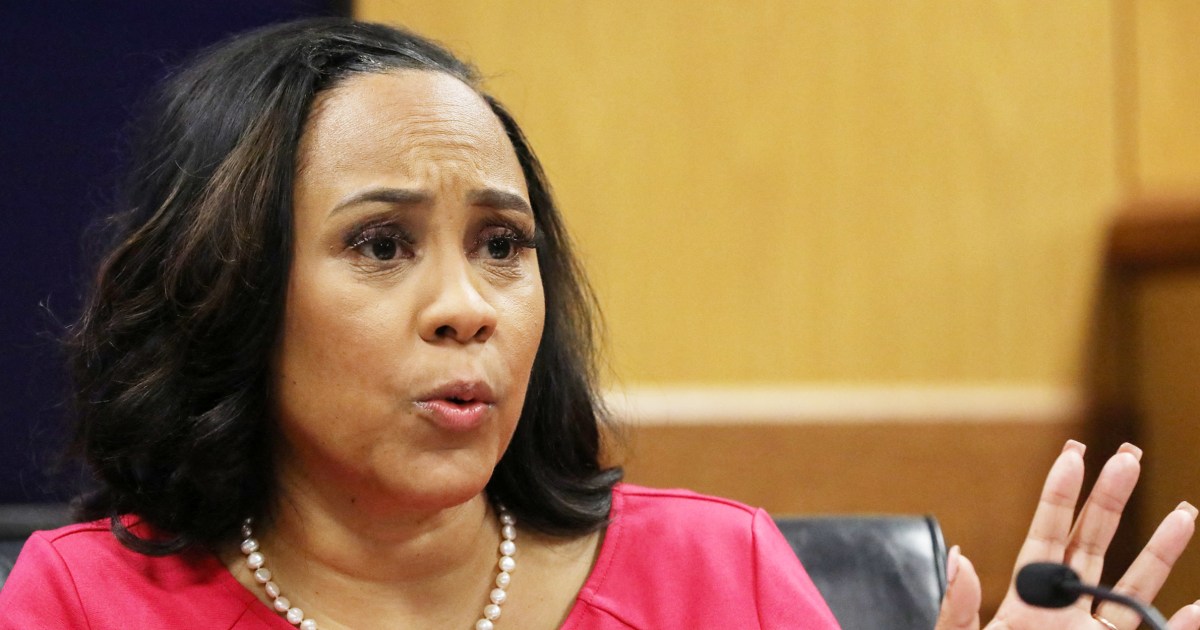
 www.msnbc.com
www.msnbc.com

Fani Willis can remain on Trump’s election case in Georgia, judge rules
McAfee rules that either special prosecutor Nathan Wade must step down or the case will be reassigned from Fani Willis and her team.
Last edited:
Fani Willis won the battle, but will likely lose the war. What kind of idiot undertakes major litigation against a former president, and funnels the case to her boyfriend? This is a good explanation of why she is a fool and why it will cost her. From the Washington Post...
"While McAfee’s decision is, in its broad strokes, a win for Willis, it comes with all kinds of tough language about her conduct. It also raises questions about how the matter might linger in the months to come and color views of the prosecution:
"While McAfee’s decision is, in its broad strokes, a win for Willis, it comes with all kinds of tough language about her conduct. It also raises questions about how the matter might linger in the months to come and color views of the prosecution:
- McAfee wrote that while the conflict of interest wasn’t proved, “an odor of mendacity remains.”
- He said that there are “reasonable questions” about whether Willis and Wade “testified untruthfully” about when their relationship began. (That timing was a crux of the complaint, with the defendants trying to prove that the relationship began before Wade was appointed.)
- McAfee emphasized that his proceedings couldn’t “ferret out every instance of potential dishonesty from each witness” because of constraints.
- But he suggestively pointed to other forums that could shed more light, including the state bar, a state ethics commission and the Georgia General Assembly. (As it happens, the legislature passed a law, signed by Gov. Brian Kemp (R) this week, empowering a panel to investigate and potentially punish “rogue” local prosecutors. While not explicitly targeted at Willis, the ruling could provide fodder for such a process.)
- McAfee said Willis had displayed a “tremendous lapse in judgment” and cited “the unprofessional manner” of her animated, defiant testimony last month. He also called a speech she delivered decrying the attacks on her “legally improper” because it suggested racial motivations.
And notably, it comes after Willis was rebuked by another judge in 2022 in similar terms. Willis had held a fundraiser for a Democratic candidate who would ultimately face one of the Trump allies she was scrutinizing. “It’s a ‘What are you thinking?’ moment,” that judge said in blocking Willis from investigating the man, now-Lt. Gov. Burt Jones (R). “The optics are horrific.”
The article continues, pointing out how Fani made unforced errors in the case...
Georgia State University law professor Clark Cunningham, who previously urged Willis to step aside, said the ruling showed why.
He said the matter raised “a risk of reversal of an eventual guilty verdict, especially if the court of appeals disagrees with McAfee.”
One potential avenue for defendants is pointing to Willis’s speech potentially prejudicing jurors. McAfee noted there wasn’t much case law upon which to base a decision, which could invite an appeals court to weigh in.
Emory University law professor Kamina A. Pinder said the ruling cast a “shadow” over Willis’s career. But Pinder noted that putting someone else on the case might harm the prosecution.
In the near term, the ruling probably means more delays, which would play into Trump’s hands with the election looming and uncertainty about whether he’ll face trial before Election Day in at least three of his four criminal cases. (The fourth is scheduled to begin later this month, but the prosecutor on Thursday opened the door to a delay.)
If Willis’s office doesn’t want to try the case itself, she would be faced with finding a new special prosecutor to take it — which could prove difficult given the level of scrutiny faced by Willis and Wade. Any new attorneys would also need to be brought up to speed. And the ruling could be appealed.
There’s also the matter of how feasible it would be for Willis to step aside. McAfee indicated that even a finding of a conflict of interest wouldn’t necessarily disqualify Willis’s entire office. Some suggest that would allow her to hand the case off to a deputy. But it’s murky whether she could do that.
Practical concerns aside, experts largely agreed that Willis had done damage to her cause — that even if her conduct didn’t rise to the level of a conflict of interest, and even if she can continue, she played into the hands of her critics.
“This is a prime example of defense attorneys exploiting an unforced error by a prosecutor,” said Emory law professor John Felipe Acevedo...
Georgia State University law professor Clark Cunningham, who previously urged Willis to step aside, said the ruling showed why.
He said the matter raised “a risk of reversal of an eventual guilty verdict, especially if the court of appeals disagrees with McAfee.”
One potential avenue for defendants is pointing to Willis’s speech potentially prejudicing jurors. McAfee noted there wasn’t much case law upon which to base a decision, which could invite an appeals court to weigh in.
Emory University law professor Kamina A. Pinder said the ruling cast a “shadow” over Willis’s career. But Pinder noted that putting someone else on the case might harm the prosecution.
In the near term, the ruling probably means more delays, which would play into Trump’s hands with the election looming and uncertainty about whether he’ll face trial before Election Day in at least three of his four criminal cases. (The fourth is scheduled to begin later this month, but the prosecutor on Thursday opened the door to a delay.)
If Willis’s office doesn’t want to try the case itself, she would be faced with finding a new special prosecutor to take it — which could prove difficult given the level of scrutiny faced by Willis and Wade. Any new attorneys would also need to be brought up to speed. And the ruling could be appealed.
There’s also the matter of how feasible it would be for Willis to step aside. McAfee indicated that even a finding of a conflict of interest wouldn’t necessarily disqualify Willis’s entire office. Some suggest that would allow her to hand the case off to a deputy. But it’s murky whether she could do that.
Practical concerns aside, experts largely agreed that Willis had done damage to her cause — that even if her conduct didn’t rise to the level of a conflict of interest, and even if she can continue, she played into the hands of her critics.
“This is a prime example of defense attorneys exploiting an unforced error by a prosecutor,” said Emory law professor John Felipe Acevedo...
Keep in mind, just a few years ago, Fani Willis accused her predecessor of the same crime she just committed...
Yes Fani used poor judgment, but where is the evidence Donald did not attempt to unlawfully interfere in the GA election? Once again he finds a crack and convinces others it is a canyon,
Who cares what Dershowitz thinks? He should be hanging out with his buddy OJ Simpson and is still grieving over the death of his friend Jeffrey Epstein. He's got the moral composition of Trump.
Point of order. Every officer of the court knows the Defendant is not required to prove his/her innocence. Burden is on the State to prove his/her guilt. Lets hear all the evidence before rendering a decision.Yes Fani used poor judgment, but where is the evidence Donald did not attempt to unlawfully interfere in the GA election? Once again he finds a crack and convinces others it is a canyon,
Don't know whether it is a crack or a canyon, but prosecutors to date appear over their heads and buffoonish. We shall see.
If that was the case, why not appoint him or her in the first place? The answer, she wanted to funnel money to her boyfriend/ lover/ paramour.KE, agree with your point of order, the presumption of innocence still exists. I believe Fani should demote herself to a consulting role, several of her assistants have appeared competent.
Furthermore, Fani cannot be second fiddle. She wants to be the one to take down Trump. She wants to make the arguments at trial against Trump; she wants to stare him down; and she wants to cross-examine him.
The other thing to remember is Fani is now damaged goods. She is prosecuting people for the same conduct that she is accused of committing with Nathan Wade. She has placed her personal interests above the interests of her constituents and her position. If he lied, then she lied.
"These two essentially testified in tandem. She adopted his testimony so if he lied she pretty much lied the same way. They both maintained that the relationship began after he was hired and really held a sort of unified front. I think that what the judge was trying to do in giving these two options to Wade was to gently give a third option to Willis. And that option is to remove yourself, take the ethical course. And I think that's very clear in his opinion.
"Nobody reading this opinion with these damning findings could possibly believe that Willis can continue to be part of this case. She is prosecuting people for the underlining [SIC] conduct she is accused of committing with Nathan Wade. False statements given to a court. False filings that have been submitted. How could she possibly continue that without damaging her case? But the problem is that she has had this opportunity to take the high road, repeatedly, and she clearly had never wanted to do that and this will probably be her last chance to do the right thing and to remove herself."...
"The point is that for people that want to see this as a take down for Trump she is now a major liability. And she has few friends left."
"These two essentially testified in tandem. She adopted his testimony so if he lied she pretty much lied the same way. They both maintained that the relationship began after he was hired and really held a sort of unified front. I think that what the judge was trying to do in giving these two options to Wade was to gently give a third option to Willis. And that option is to remove yourself, take the ethical course. And I think that's very clear in his opinion.
"Nobody reading this opinion with these damning findings could possibly believe that Willis can continue to be part of this case. She is prosecuting people for the underlining [SIC] conduct she is accused of committing with Nathan Wade. False statements given to a court. False filings that have been submitted. How could she possibly continue that without damaging her case? But the problem is that she has had this opportunity to take the high road, repeatedly, and she clearly had never wanted to do that and this will probably be her last chance to do the right thing and to remove herself."...
"The point is that for people that want to see this as a take down for Trump she is now a major liability. And she has few friends left."
The Lawfare continues. Trump cannot post bond on his judgment in the NY case brought by the NY Attorney General, Lettia James. I would say Trump is in trouble.
"Gary Giulietti, an executive with insurance brokerage the Lockton Companies hired by Trump to help get a bond, wrote in the court filing that a bond for the full $464 million is not possible under the circumstances presented.
Giulietti said many sureties would not issue bonds above $100 million and were willing to accept only cash or securities - not real estate - as collateral....."
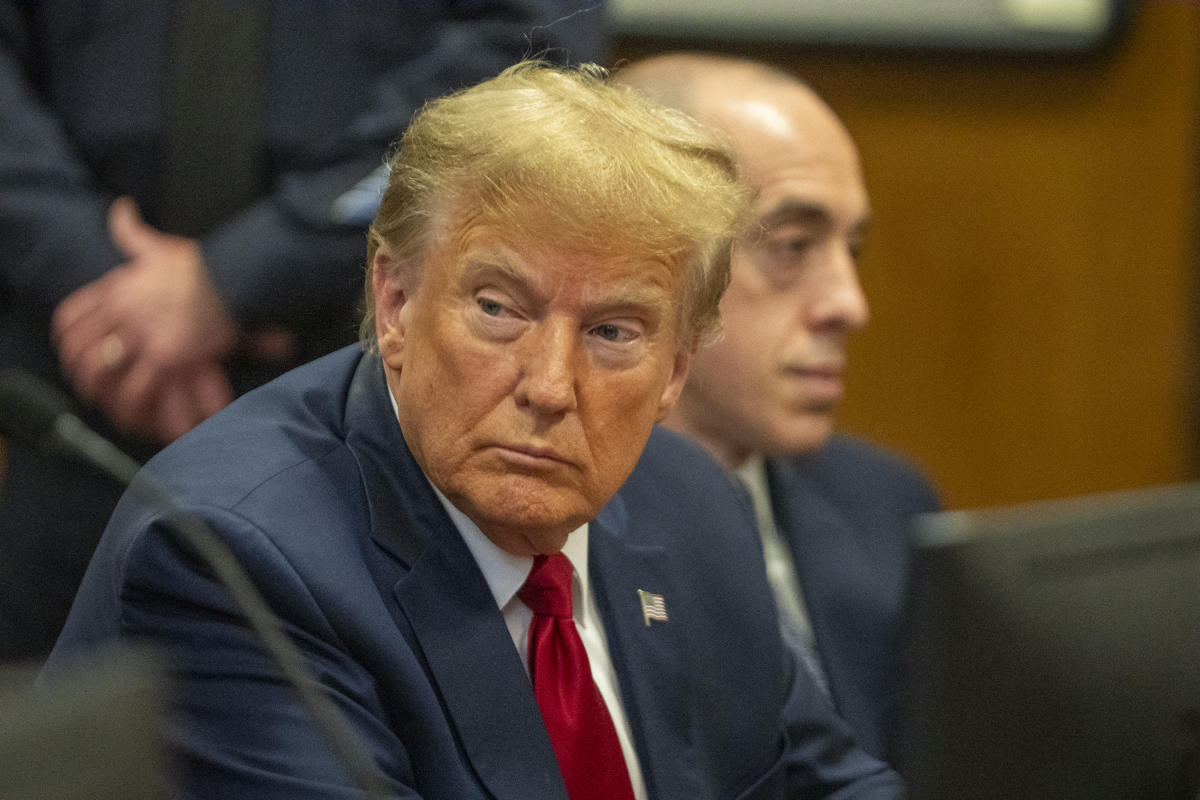
 finance.yahoo.com
finance.yahoo.com
"Gary Giulietti, an executive with insurance brokerage the Lockton Companies hired by Trump to help get a bond, wrote in the court filing that a bond for the full $464 million is not possible under the circumstances presented.
Giulietti said many sureties would not issue bonds above $100 million and were willing to accept only cash or securities - not real estate - as collateral....."
Trump fails to secure bond for $454M judgment in civil fraud case as asset seizures loom
Donald Trump's efforts to secure a bond to cover a $454 million judgment in a New York civil fraud case has been rejected by 30 surety companies, his lawyers said on Monday, inching him closer to the possibility of having his properties seized. The former president must either pay the sum out...
Once the next Republican takes office, Joe Biden and Hunter Biden will be prosecuted to the fullest extent of the law. Biden will have to remain in office to avoid being prosecuted. They can't hide forever.
Every defendant has the right to a vigorous defense. The presumption is one of innocence.And if they are guilty they should be prosecuted without playing the procedural games Trump is playing.
Here is an excellent point by point rejoinder to the Court's ruling on Friday.
"t wasn’t Judge McAfee’s failure to find an actual conflict of interest that proved most troubling about Friday’s decision. Rather, it was that McAfee found the relationship between Wade and Willis created an appearance of impropriety that necessitated Wade’s removal from the case—but not Willis. His reasoning was inconceivable!
Allowing Wade to remain on the case could cause “reasonable members of the public” to “be left to wonder whether the financial exchanges have continued resulting in some form of benefit to the District Attorney, or even whether the romantic relationship resumed,” Judge McAfee explained. After all, “the District Attorney testified her relationship with Wade has only ‘cemented’ after these motions [to disqualify her] and “is stronger than ever.”
“[A]n outsider could reasonably think that the District Attorney is not exercising her independent professional judgment totally free of any compromising influence,” the Fulton County Superior Court judge thus concluded. One would think coitus might have cemented their relationship more strongly than some court filings.
In any event, if an outsider could reasonably believe Willis was “not exercising her independent professional judgment totally free of any compromising influence” because she kept her ex-lover on the payroll, a member of the public could also reasonably believe Willis was not exercising her independent judgment when she and Wade were lovers. Likewise, if the removal of Wade was necessitated because reasonable members of the public might wonder if the affair and financial exchanges had resumed, removal of both would be required because the public knows such exchanges occurred during their affair, and it takes two to tango.
Further, for the court to find Willis could remain, but not Wade, after concluding “an odor of mendacity remains” was nonsensical, because Judge McAfee found there were “reasonable questions about whether the District Attorney and her hand-selected lead SADA testified untruthfully about the timing of their relationship” (emphasis added).
If the presiding judge found it reasonable to question whether the D.A. lied on the stand and under oath, so too would it be reasonable for the public to question whether Willis committed perjury. Allowing her to continue with the prosecution under these circumstances is beyond the pale.
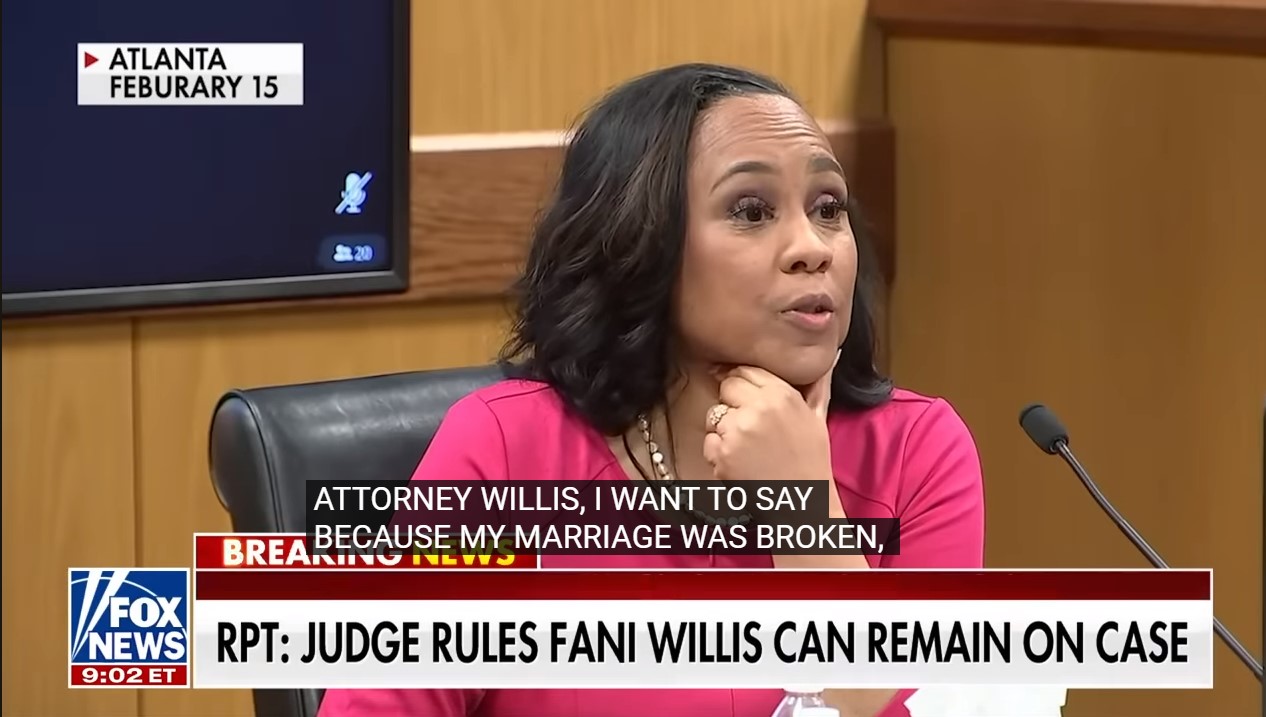
 thefederalist.com
thefederalist.com
"t wasn’t Judge McAfee’s failure to find an actual conflict of interest that proved most troubling about Friday’s decision. Rather, it was that McAfee found the relationship between Wade and Willis created an appearance of impropriety that necessitated Wade’s removal from the case—but not Willis. His reasoning was inconceivable!
Allowing Wade to remain on the case could cause “reasonable members of the public” to “be left to wonder whether the financial exchanges have continued resulting in some form of benefit to the District Attorney, or even whether the romantic relationship resumed,” Judge McAfee explained. After all, “the District Attorney testified her relationship with Wade has only ‘cemented’ after these motions [to disqualify her] and “is stronger than ever.”
“[A]n outsider could reasonably think that the District Attorney is not exercising her independent professional judgment totally free of any compromising influence,” the Fulton County Superior Court judge thus concluded. One would think coitus might have cemented their relationship more strongly than some court filings.
In any event, if an outsider could reasonably believe Willis was “not exercising her independent professional judgment totally free of any compromising influence” because she kept her ex-lover on the payroll, a member of the public could also reasonably believe Willis was not exercising her independent judgment when she and Wade were lovers. Likewise, if the removal of Wade was necessitated because reasonable members of the public might wonder if the affair and financial exchanges had resumed, removal of both would be required because the public knows such exchanges occurred during their affair, and it takes two to tango.
Further, for the court to find Willis could remain, but not Wade, after concluding “an odor of mendacity remains” was nonsensical, because Judge McAfee found there were “reasonable questions about whether the District Attorney and her hand-selected lead SADA testified untruthfully about the timing of their relationship” (emphasis added).
If the presiding judge found it reasonable to question whether the D.A. lied on the stand and under oath, so too would it be reasonable for the public to question whether Willis committed perjury. Allowing her to continue with the prosecution under these circumstances is beyond the pale.

It’s Perverted Justice To Let Fani Willis Keep Prosecuting Trump
Fani Willis and the Fulton County D.A.’s office now have a personal stake in prosecuting the defendants who exposed Willis’s affair.
Ms. Cleveland continues:
But there is an even more profound reason for Willis and the entire Fulton County D.A.’s office to be disqualified: Willis and the Fulton County D.A.’s office now have a personal stake in prosecuting the defendants who exposed Willis’s affair with Wade, showed them both to be possible perjurers, and embarrassed both Willis and her team of prosecutors.
As Judge McAfee opened his Friday opinion, “Importantly, prosecutors are expected to assume a role beyond a mere advocate for one side and must make decisions in the public’s interest – not their own personal or political interest.” “Recognizing these are not empty slogans nor toothless admonitions without practical effect, Georgia courts have not hesitated to step in and use their inherent authority to disqualify a state prosecutor when required,” McAfee continued.
Anyone who watched Willis testify during McAfee’s evidentiary hearing knows full well that D.A.’s focus will not be on the public interest, but on obtaining retribution for what she saw as the defendants putting her on trial. Willis’s colleagues in the D.A.’s office went to great lengths to assist Willis and Wade in fighting the accusations, leaving them only slightly less tainted.

 thefederalist.com
thefederalist.com
But there is an even more profound reason for Willis and the entire Fulton County D.A.’s office to be disqualified: Willis and the Fulton County D.A.’s office now have a personal stake in prosecuting the defendants who exposed Willis’s affair with Wade, showed them both to be possible perjurers, and embarrassed both Willis and her team of prosecutors.
As Judge McAfee opened his Friday opinion, “Importantly, prosecutors are expected to assume a role beyond a mere advocate for one side and must make decisions in the public’s interest – not their own personal or political interest.” “Recognizing these are not empty slogans nor toothless admonitions without practical effect, Georgia courts have not hesitated to step in and use their inherent authority to disqualify a state prosecutor when required,” McAfee continued.
Anyone who watched Willis testify during McAfee’s evidentiary hearing knows full well that D.A.’s focus will not be on the public interest, but on obtaining retribution for what she saw as the defendants putting her on trial. Willis’s colleagues in the D.A.’s office went to great lengths to assist Willis and Wade in fighting the accusations, leaving them only slightly less tainted.

It’s Perverted Justice To Let Fani Willis Keep Prosecuting Trump
Fani Willis and the Fulton County D.A.’s office now have a personal stake in prosecuting the defendants who exposed Willis’s affair.
Defense yes, procedural games no. Next time you get a traffic ticket try some of those games and see how well they work.Every defendant has the right to a vigorous defense. The presumption is one of innocence.
Once I saw who wrote these it became much more clear.Ms. Cleveland continues:
But there is an even more profound reason for Willis and the entire Fulton County D.A.’s office to be disqualified: Willis and the Fulton County D.A.’s office now have a personal stake in prosecuting the defendants who exposed Willis’s affair with Wade, showed them both to be possible perjurers, and embarrassed both Willis and her team of prosecutors.
As Judge McAfee opened his Friday opinion, “Importantly, prosecutors are expected to assume a role beyond a mere advocate for one side and must make decisions in the public’s interest – not their own personal or political interest.” “Recognizing these are not empty slogans nor toothless admonitions without practical effect, Georgia courts have not hesitated to step in and use their inherent authority to disqualify a state prosecutor when required,” McAfee continued.
Anyone who watched Willis testify during McAfee’s evidentiary hearing knows full well that D.A.’s focus will not be on the public interest, but on obtaining retribution for what she saw as the defendants putting her on trial. Willis’s colleagues in the D.A.’s office went to great lengths to assist Willis and Wade in fighting the accusations, leaving them only slightly less tainted.

It’s Perverted Justice To Let Fani Willis Keep Prosecuting Trump
Fani Willis and the Fulton County D.A.’s office now have a personal stake in prosecuting the defendants who exposed Willis’s affair.thefederalist.com
Unless this country becomes Putin like (very possible if Trump or some other MAGA cult member is elected), prosecutors must have evidence to present to a grand jury before anyone can be charged with crimes. There is currently no evidence of Joe Biden committing any crimes, just a bunch of BS allegations by Comer, Jordan, MTG and other do nothing MAGA extremists in the House. Please provide your inside information that Joe Biden is hiding crimes, I'm sure you are a better investigator and have more information and resources than Weiss (appointed by Trump and not replaced by Biden). Your crazy Biden obsession continues, provide some real evidence of Biden crimes and I won't think you're off your rocker.Once the next Republican takes office, Joe Biden and Hunter Biden will be prosecuted to the fullest extent of the law. Biden will have to remain in office to avoid being prosecuted. They can't hide forever.
It's a convincing argument that presents an alternative viewpoint. A number of bar complaints have already been filed against both of them. I wonder if the county will have to foot the defendant's bill for that too.Once I saw who wrote these it became much more clear.
Trump and the defendants have asked the court to grant them the ability to appeal. Given the nature of the case, I expect the court to grant the motion.
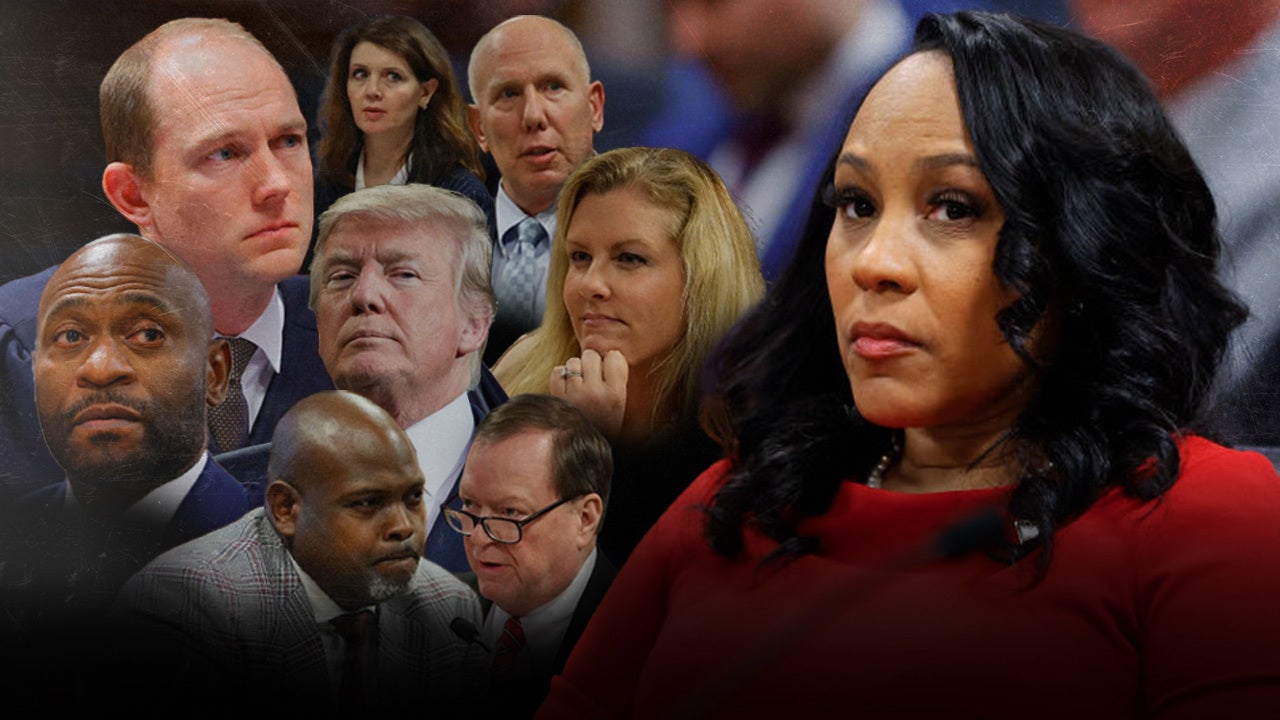
 www.fox5atlanta.com
www.fox5atlanta.com

Trump, co-defendants asking to appeal Fulton County DA Fani Willis disqualification decision
The defense in the Georgia election interference case has filed a joint motion in an effort to appeal Fulton County Superior Court Judge McAfee's ruling on the disqualification motions against District Attorney Fani Willis and her office.
Fani Willis, Nathan Wade and the DA'S office have been sued by Judicial Watch. Apparently, Fani was dishonest about her contacts with the Federal Government. Fani has again imperiled her law license.
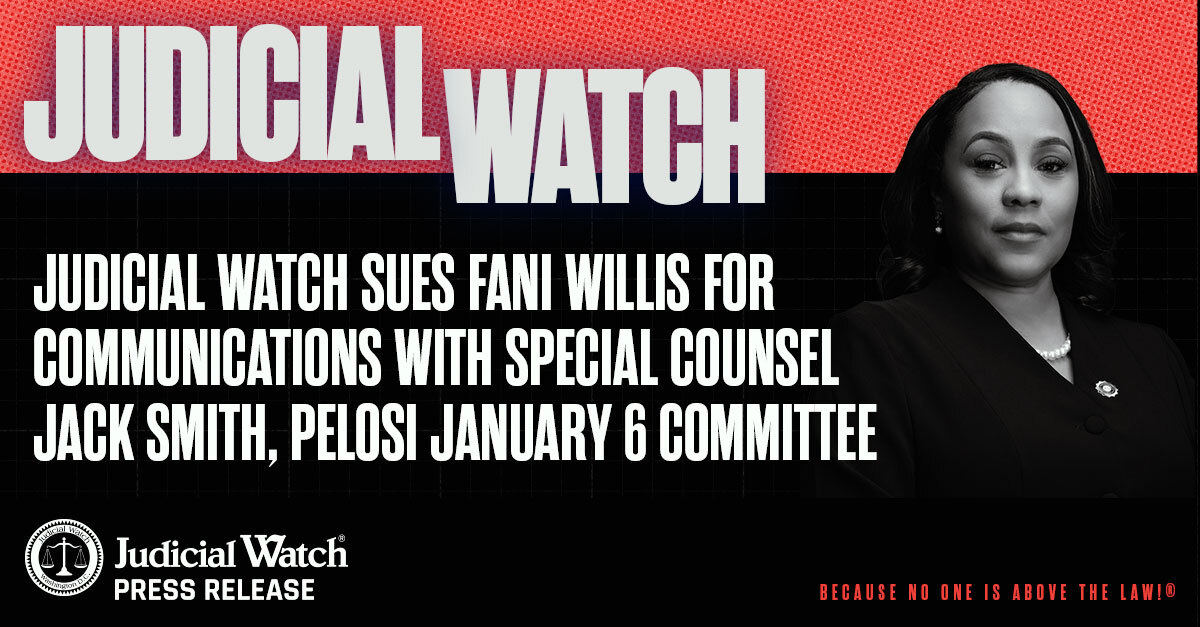

Judicial Watch Sues Fani Willis for Communications with Special Counsel Jack Smith, Pelosi January 6 Committee - Judicial Watch
(Washington, DC) – Judicial Watch announced today it filed a Georgia Open Records Act lawsuit against District Attorney Fani Willis and Fulton County, Georgia, for records of any communication Willis and the county had with Special Counsel Jack Smith and the House January 6 Committee (Judicial...
www.judicialwatch.org
Last edited:
The deadline for Trump to post bond is March 25. As of now, he can't post bond. The NY Attorney General has promised that she will seize his assets.
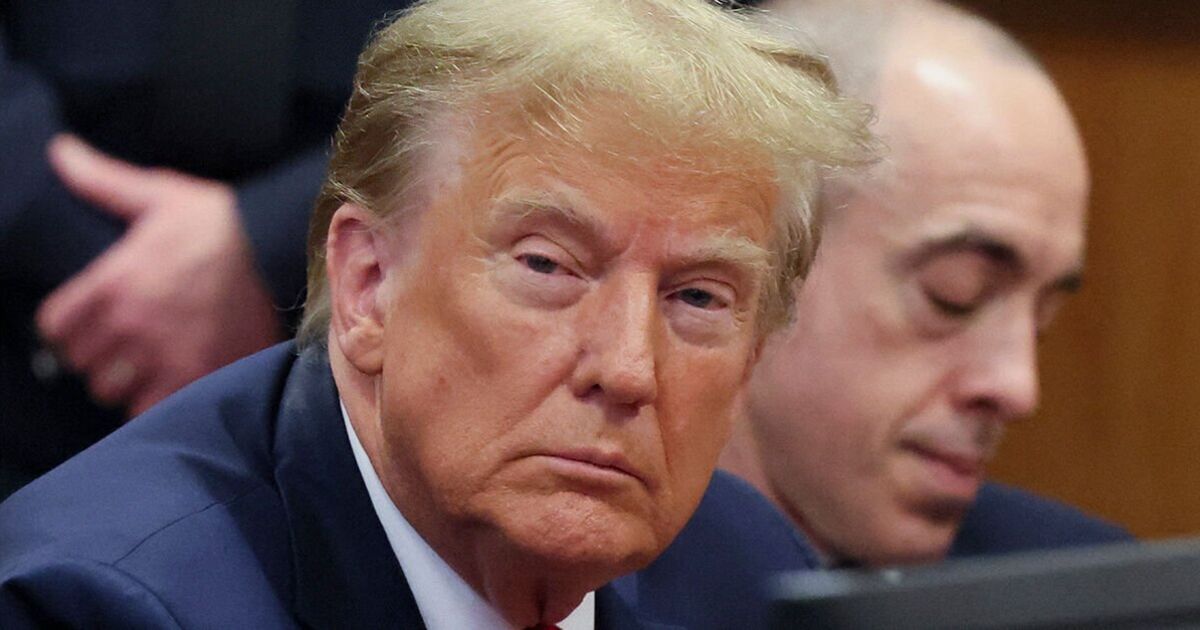
 www.the-express.com
www.the-express.com

Donald Trump could have his properties seized as he owes $454m in fraud case
Donald Trump has been ordered to pay $454 million in a civil fraud case brought by the state of New York, and the state's attorney general has warned she will seize his assets if he doesn't pay up.
The judge has ruled that the Defendants can appeal the order of Judge Scott Mcafee, in the Fani Willis saga.
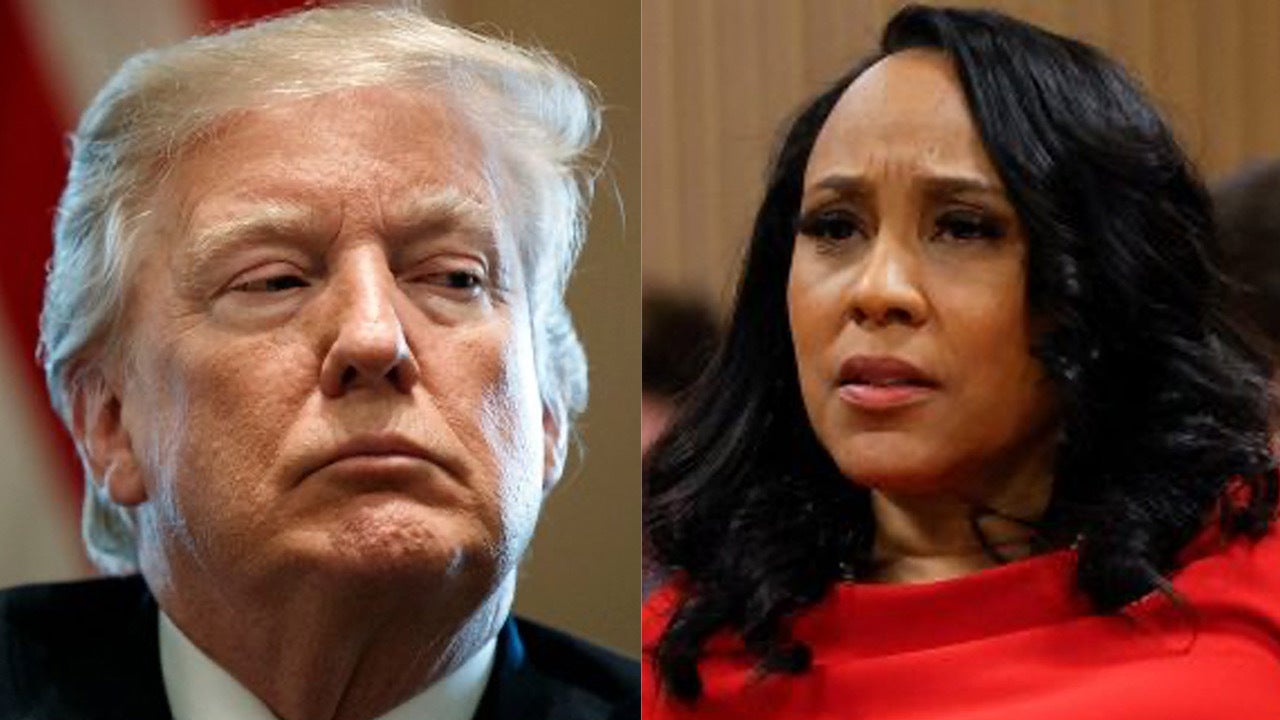
 www.foxnews.com
www.foxnews.com

Georgia judge allows Trump, co-defendants to appeal Fani Willis disqualification decision
A Georgia judge presiding over the 2020 election interference case against former President Trump on Wednesday announced that Trump and eight co-defendants can appeal his decision to not disqualify Fulton County District Attorney Fani Willis.
Cannot read it, as it is behind a registration wall, not willing to do. Yes he actually made it easy to appeal, and his comments seem to encourage them to appeal. As I said before he seems to be a very fair jurist. I suspect he is very comfortable with his ruling, and I also think he wants to limit potential appeal grounds once the case is over.
Other sources:
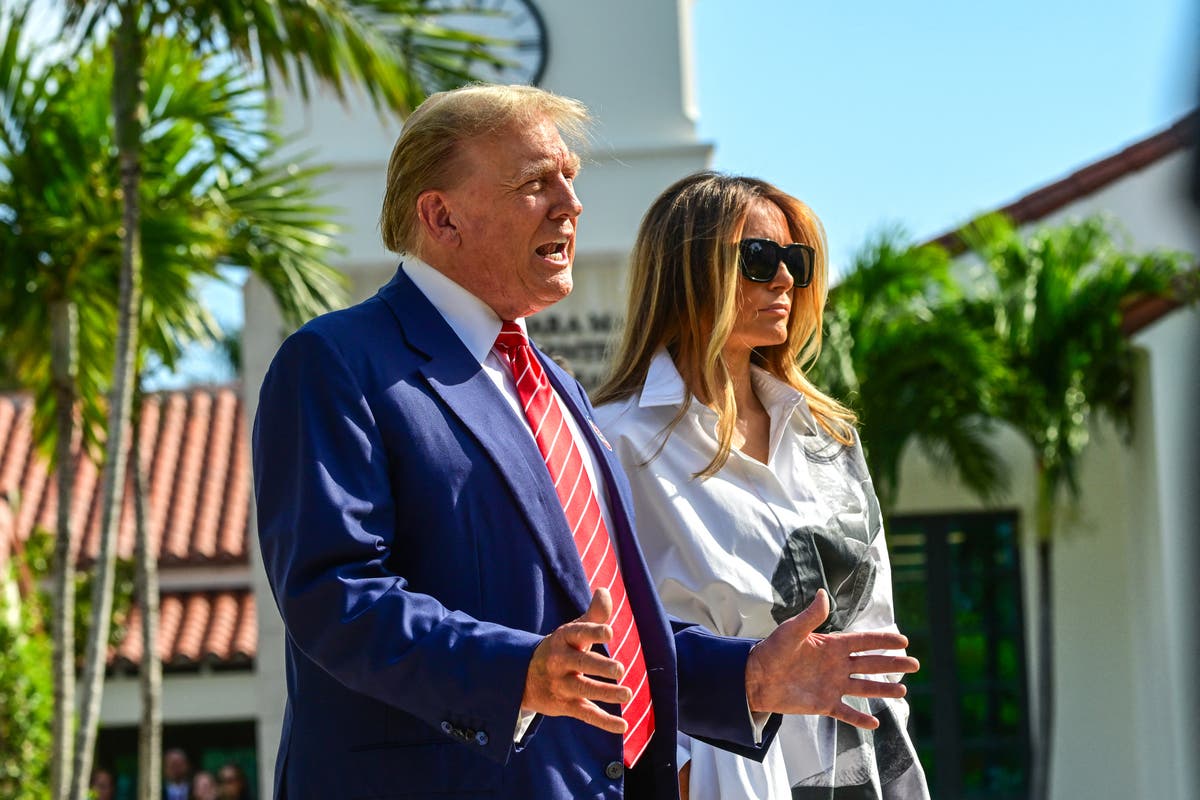
 www.independent.co.uk
www.independent.co.uk
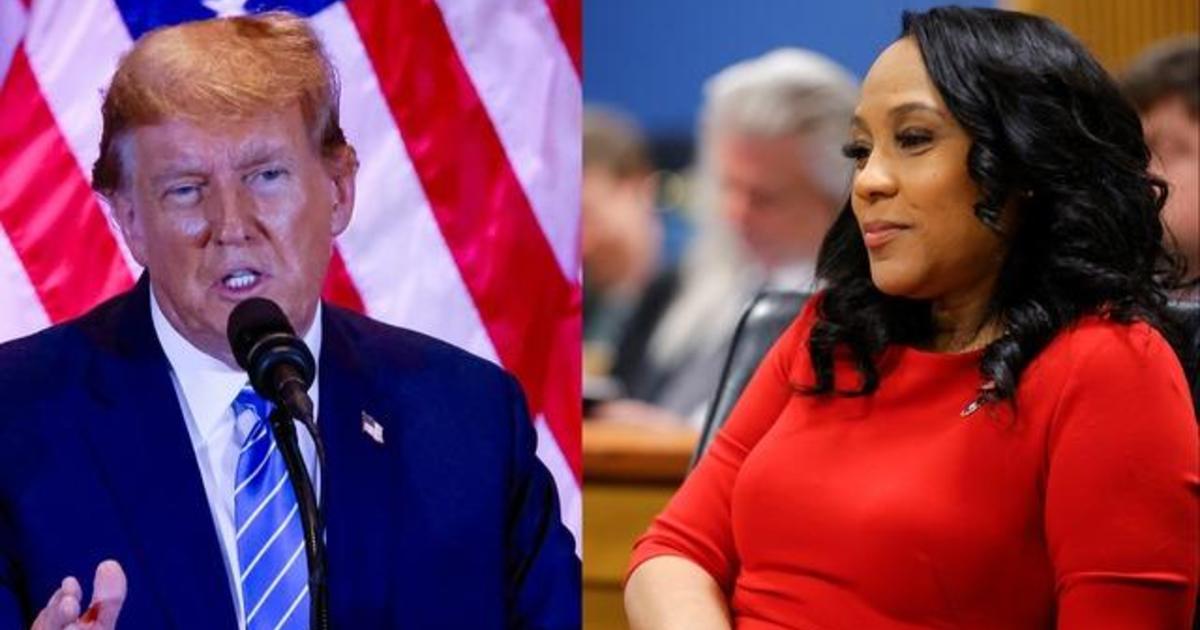
 www.cbsnews.com
www.cbsnews.com
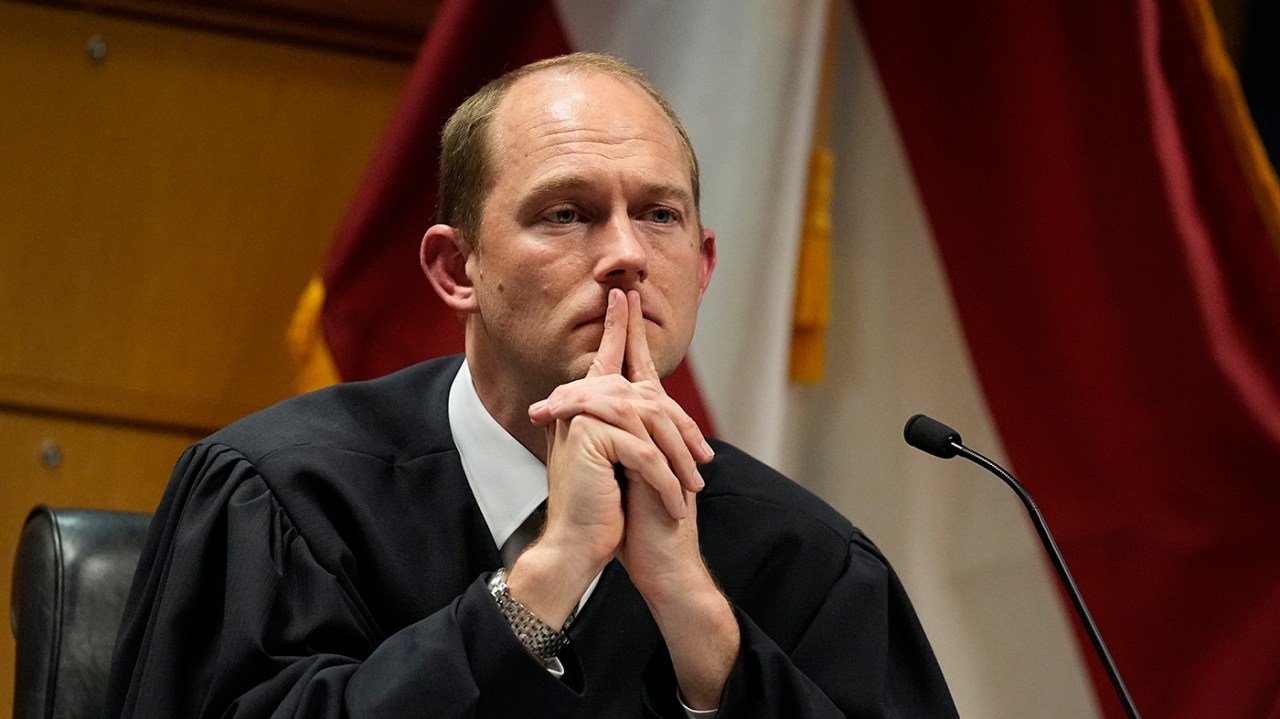
 thehill.com
thehill.com

Trump has another chance to get Fani Willis off election interference case: Live
Former president and co-defendants can appeal decision to keep Fulton County DA on case as he attempts to have separate federal indictment dismissed

Trump can appeal decision keeping Fani Willis on Georgia 2020 election case, judge says
Fulton County Superior Court Judge Scott McAfee said last week that Fani Willis could remain on the 2020 election case involving former President Donald Trump if Nathan Wade resigned.

Georgia judge allows Trump to appeal Fani Willis disqualification ruling
A Georgia judge enabled former President Trump to immediately appeal the recent ruling declining to disqualify Fulton County District Attorney Fani Willis (D) for her romantic relationship with a t…
"As John Adams once said, our constitutional system constructs a “government of laws and not of men.” When political operatives and radical partisans weaponize the justice system to crush their political opponents to maintain power, our entire system of democratic republicanism is thrown into jeopardy."
The first criminal case to fall apart is probably the strongest- the documents case- has now been indefinitely suspended.
Almost every case against President Trump has fallen apart. He now has near blanket immunity for almost everything he did while President.
The Supreme Court dealt a major blow to Donald Trump’s prosecution on charges he sought to subvert the 2020 election, ruling 6-3 Monday that former presidents enjoy sweeping immunity for their acts while in office.
The president “may not be prosecuted for exercising his core constitutional powers,” Chief Justice John Roberts wrote for the court, and “is entitled, at a minimum, to a presumptive immunity from prosecution for all his official acts.”...
Having won from the court nearly everything he could have hoped for, the presumptive Republican presidential nominee quickly celebrated.
“Big win for our Constitution and democracy. Proud to be an American!” Trump, using all capital letters, wrote on his social-media platform.
The Supreme Court dealt a major blow to Donald Trump’s prosecution on charges he sought to subvert the 2020 election, ruling 6-3 Monday that former presidents enjoy sweeping immunity for their acts while in office.
The president “may not be prosecuted for exercising his core constitutional powers,” Chief Justice John Roberts wrote for the court, and “is entitled, at a minimum, to a presumptive immunity from prosecution for all his official acts.”...
Having won from the court nearly everything he could have hoped for, the presumptive Republican presidential nominee quickly celebrated.
“Big win for our Constitution and democracy. Proud to be an American!” Trump, using all capital letters, wrote on his social-media platform.
I think those were part of his official acts. President Trump is entitled to presumptive immunity. The burden of proof is now on Fani. As soon as this is appealed, it will be thrown out....Yes Fani used poor judgment, but where is the evidence Donald did not attempt to unlawfully interfere in the GA election? Once again he finds a crack and convinces others it is a canyon,
Although Roberts stated...
"The opinion left open the possibility that Trump someday could be prosecuted for some alleged crimes that involved him acting solely as a candidate. A president “enjoys no immunity for unofficial acts, and not everything the President does is official,” Roberts wrote.
For instance, Trump’s efforts to pressure state officials, his communications with Republican Party leaders and his exhortations at the so-called Stop the Steal rally on Jan. 6, 2021, potentially could involve unofficial acts, Roberts wrote.
Still, for parts of the case that remain, the court added so many new conditions for federal prosecutors that it could be virtually impossible to hold a trial before Election Day—if ever."
Last edited:
A sad day for our democracy, now more than ever important to elect Presidents of high moral character and strong belief in the adherence to the law. A principle of our democracy since its beginning that no man is above the law has been eliminated by these so called originalists/textualists with no reference to the clear support of their ruling.
ADVERTISEMENT
ADVERTISEMENT